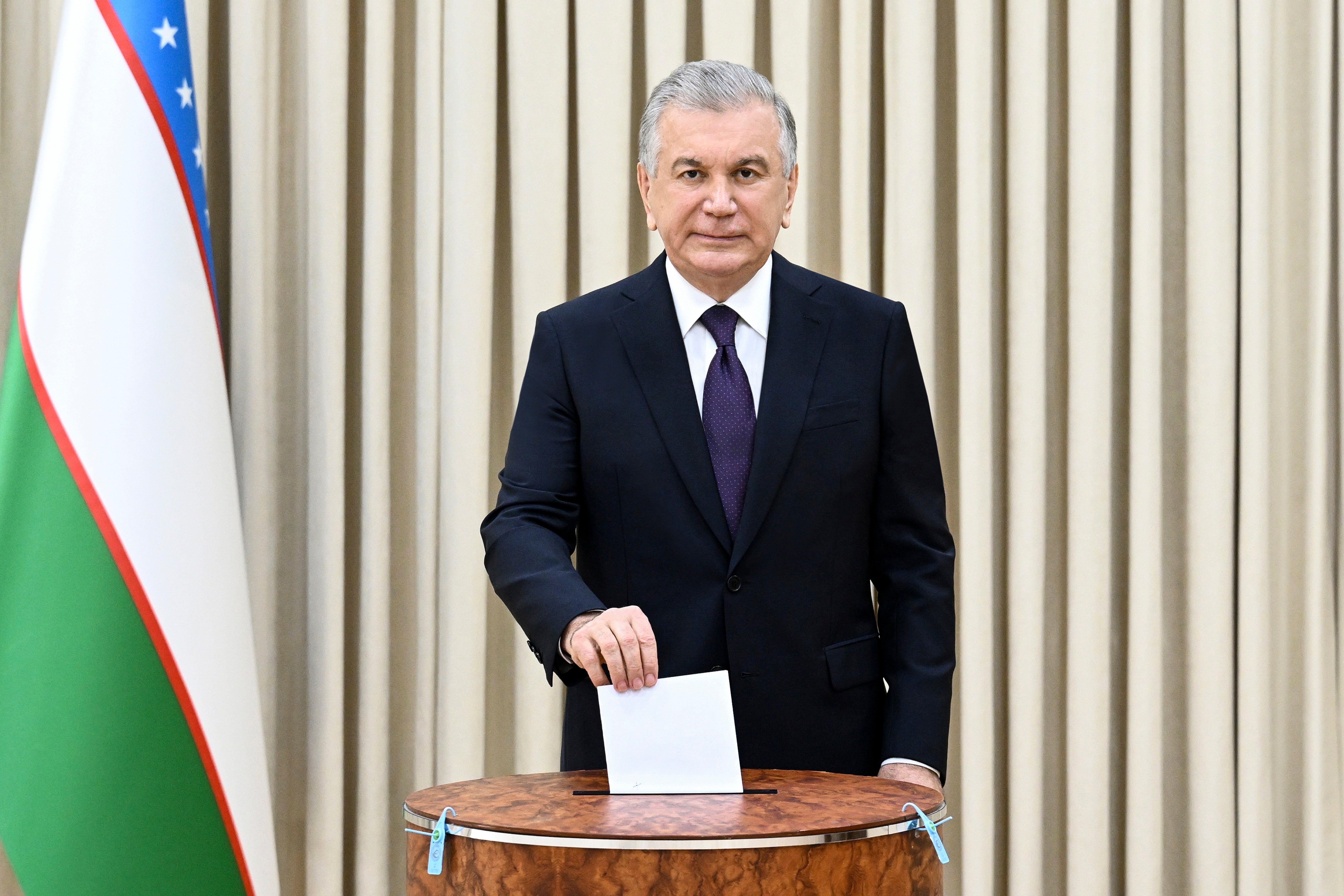Uzbeks approve changes that could extend president till 2040
Uzbekistan's central elections commission says that Uzbeks have given overwhelming approval in a referendum to constitutional changes that promise human rights reforms but that also would allow the country’s president to stay in office until 2040

Your support helps us to tell the story
From reproductive rights to climate change to Big Tech, The Independent is on the ground when the story is developing. Whether it's investigating the financials of Elon Musk's pro-Trump PAC or producing our latest documentary, 'The A Word', which shines a light on the American women fighting for reproductive rights, we know how important it is to parse out the facts from the messaging.
At such a critical moment in US history, we need reporters on the ground. Your donation allows us to keep sending journalists to speak to both sides of the story.
The Independent is trusted by Americans across the entire political spectrum. And unlike many other quality news outlets, we choose not to lock Americans out of our reporting and analysis with paywalls. We believe quality journalism should be available to everyone, paid for by those who can afford it.
Your support makes all the difference.Uzbeks gave overwhelming approval in a referendum to constitutional changes that promise human rights reforms but that also would allow the country’s president to stay in office until 2040, the country's central elections commission said Monday.
More than 90% of those who cast ballots Sunday voted for the measure, which was heavily promoted by the government, according to the commission. Nearly 85% of eligible voters took part, it said.
The changes include lengthening the presidential term from five to seven years, while retaining the existing two-term limit. Although President Shavkat Mirziyoyev is in his second term, the change in term length would allow him to run twice more after his current tenure ends in 2026.
Other changes include abolishing capital punishment and boosting legal protections for citizens, including those accused of crimes.
Under Mirziyoyev’s predecessor, Islam Karimov, Uzbekistan was one of the region’s most repressive countries. Mirziyoyev, who took over after Karimov died in 2016, touts the constitutional changes as showing that Uzbekistan will make freedoms and human rights paramount.
The referendum originally was planned for last year, but was put off in the wake of deadly unrest in the Karakalpakstan region when it was announced that the changes would include rescinding Karakalpakstan’s right to vote on whether to secede.
Although the likelihood of secession is very small, that proposal angered residents of the poor and environmentally beleaguered republic that makes up a third of Uzbekistan’s territory but has only about 5% of the country’s 36 million people. Mass unrest broke out in the Karakalpak capital, Nukus; at least 18 people died in clashes with police.
The new package retains the Karakalpakstan secession right.